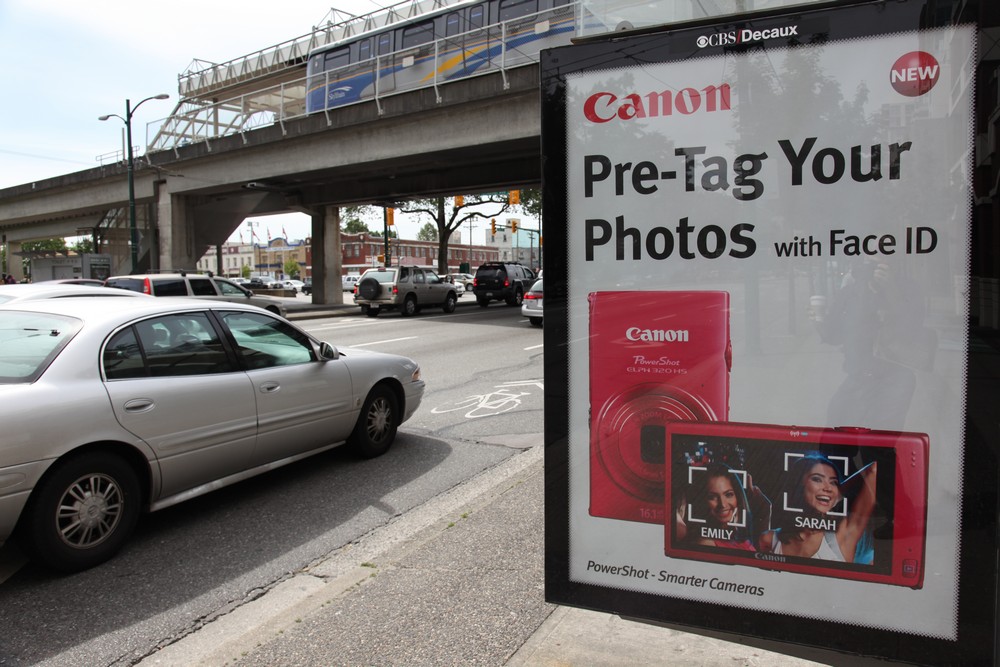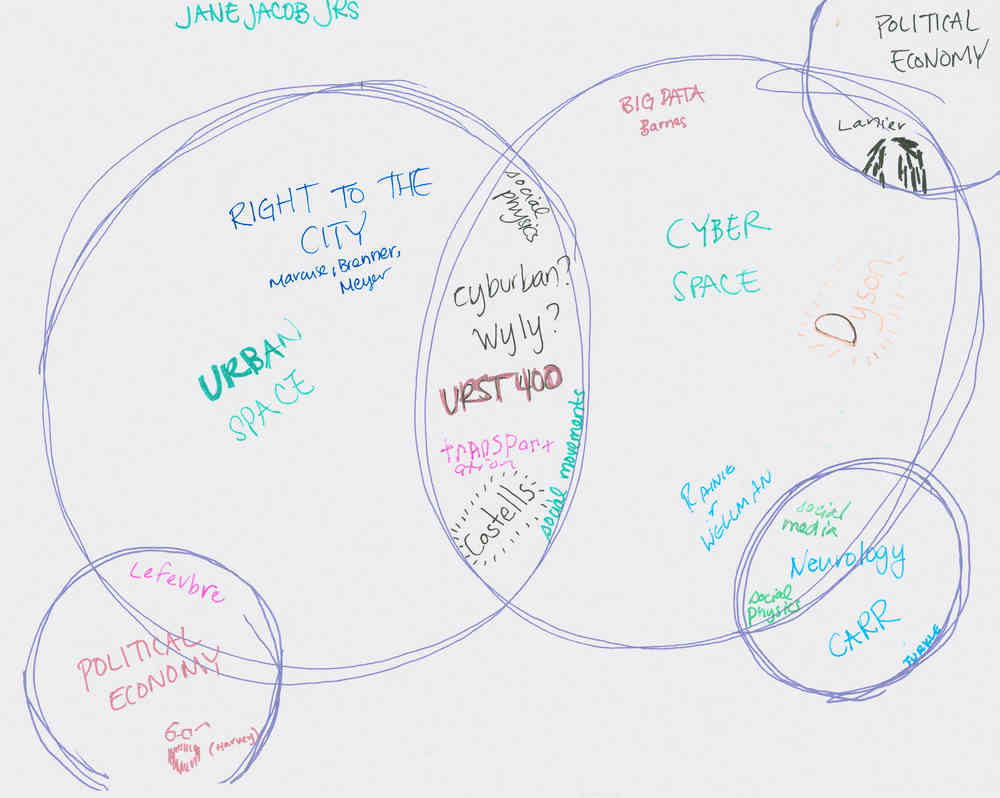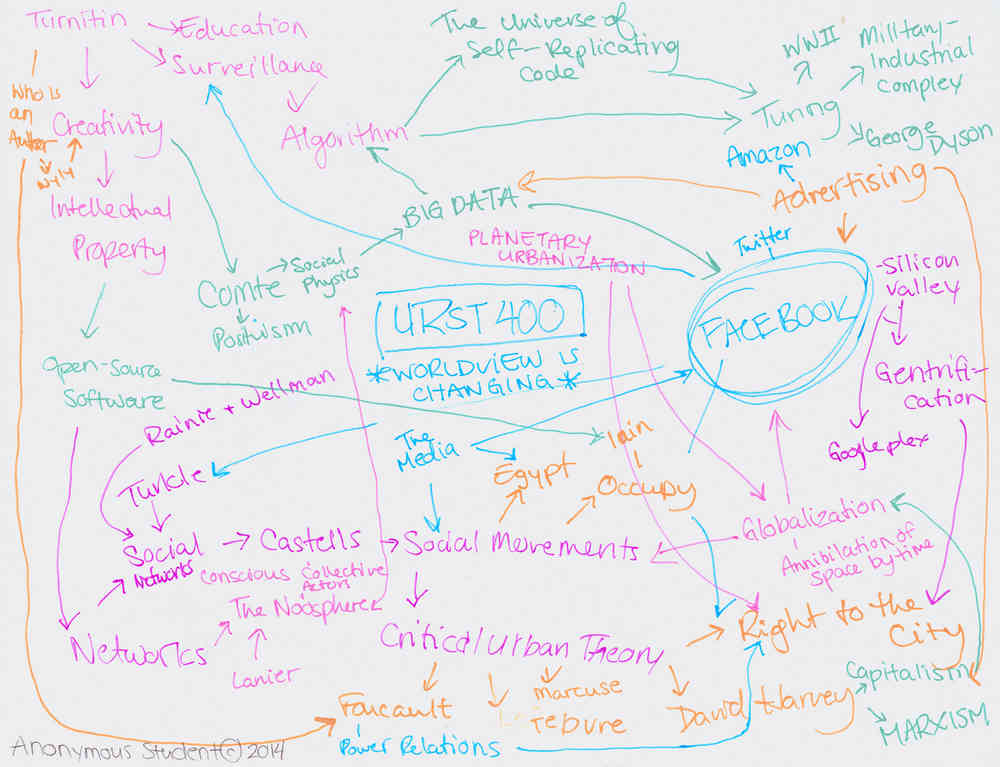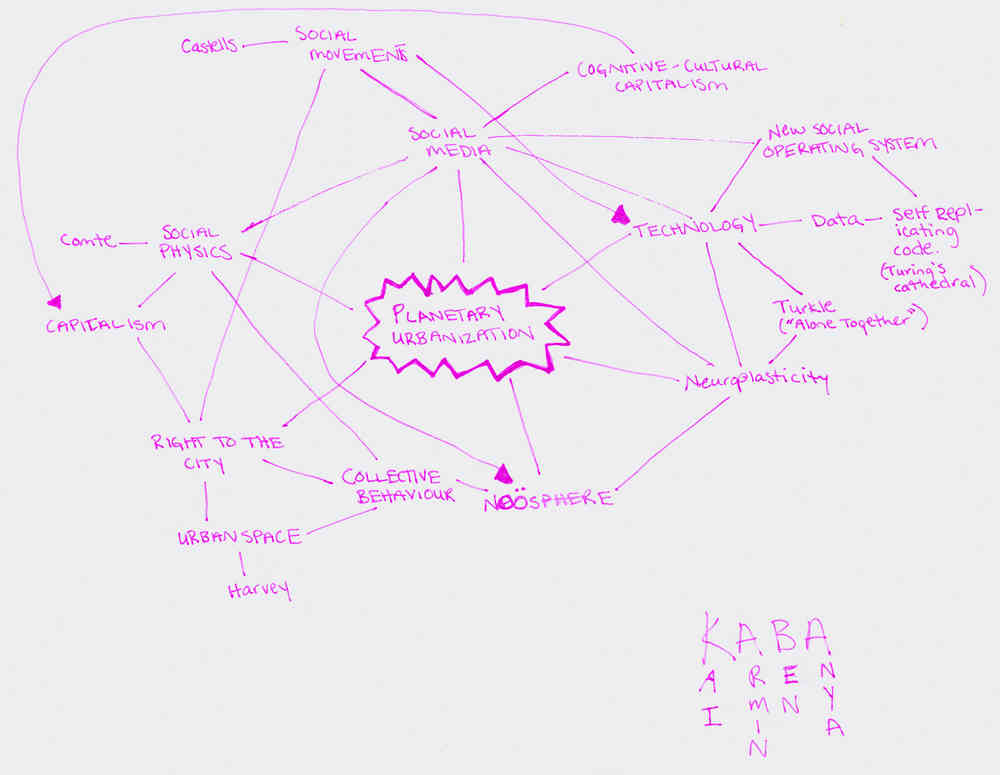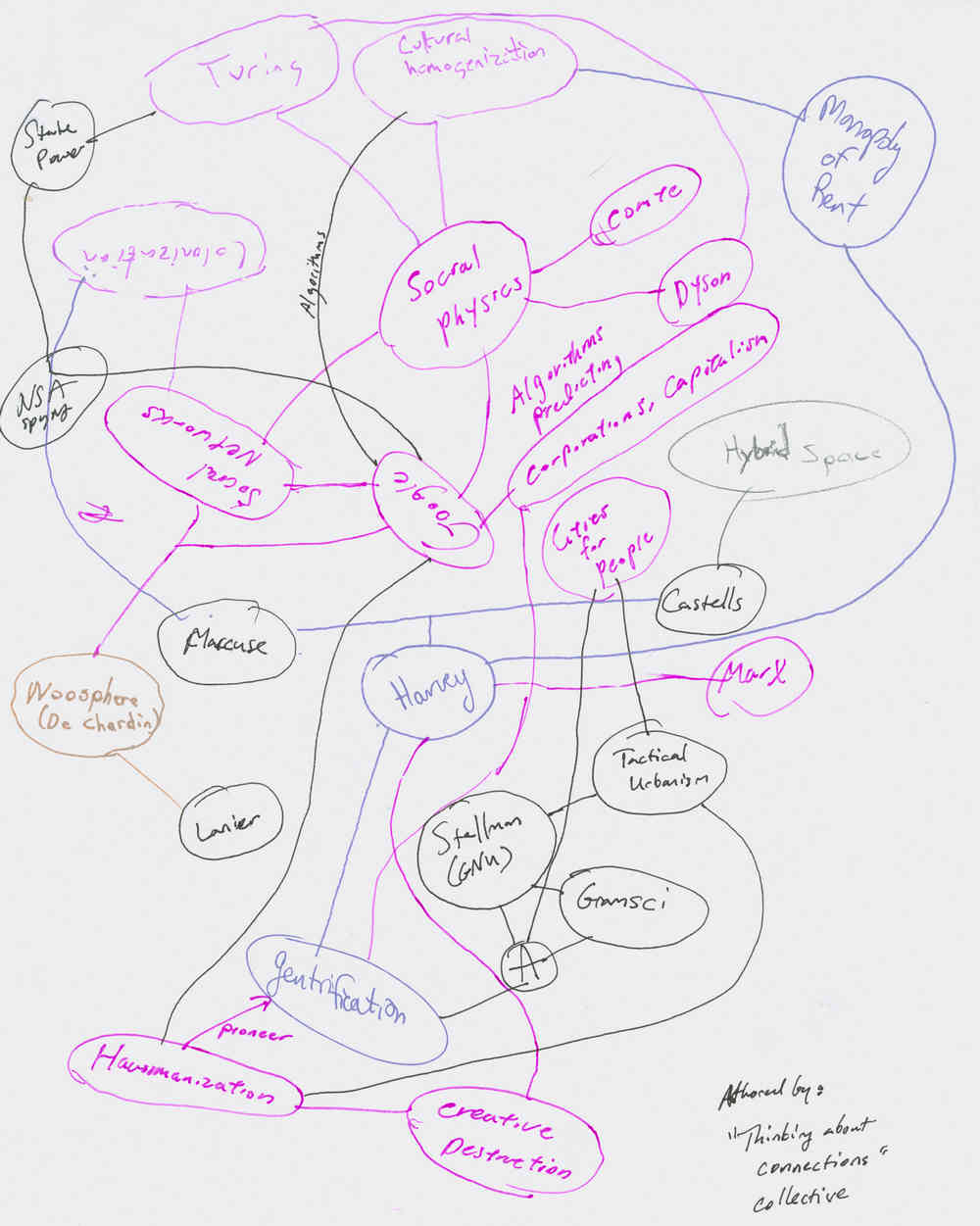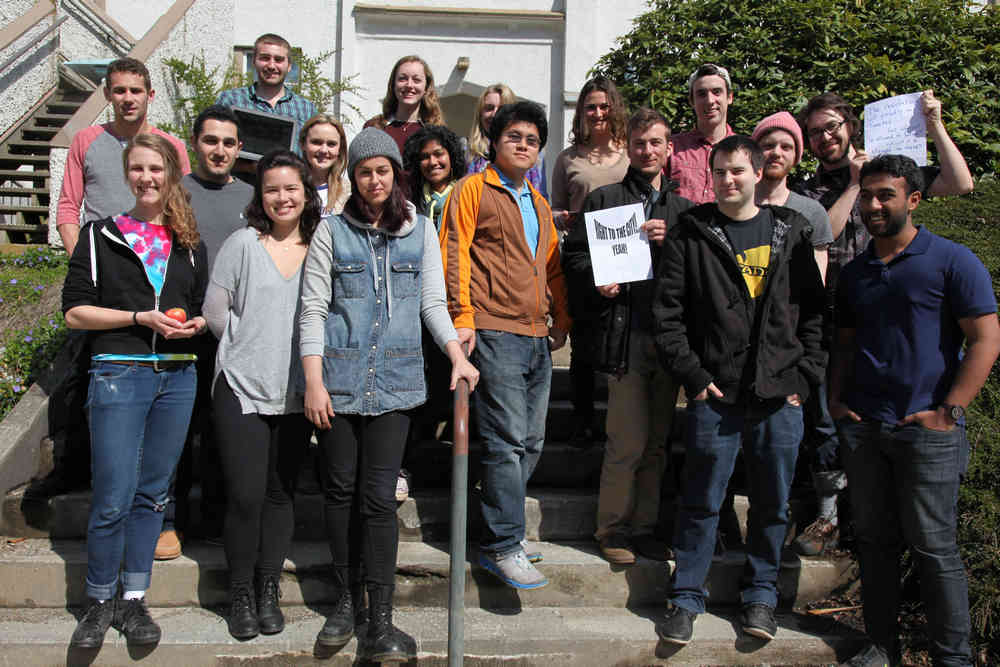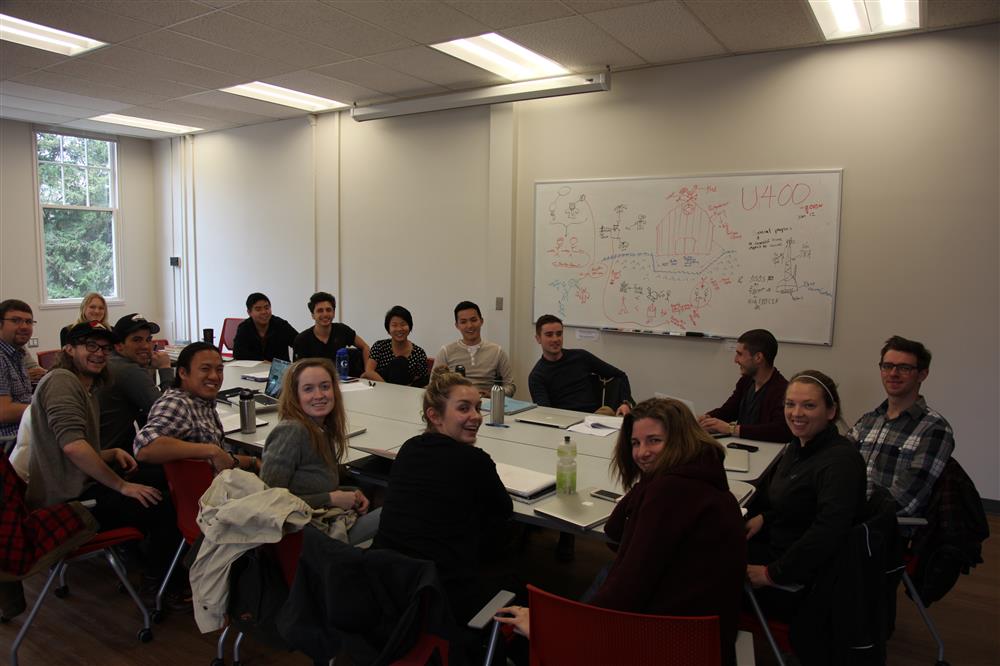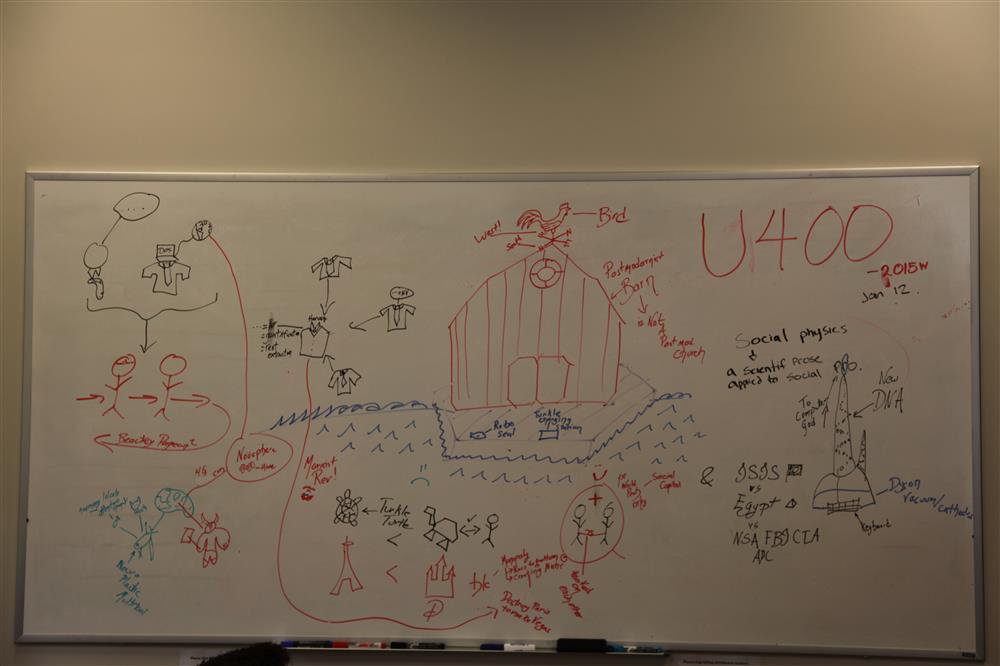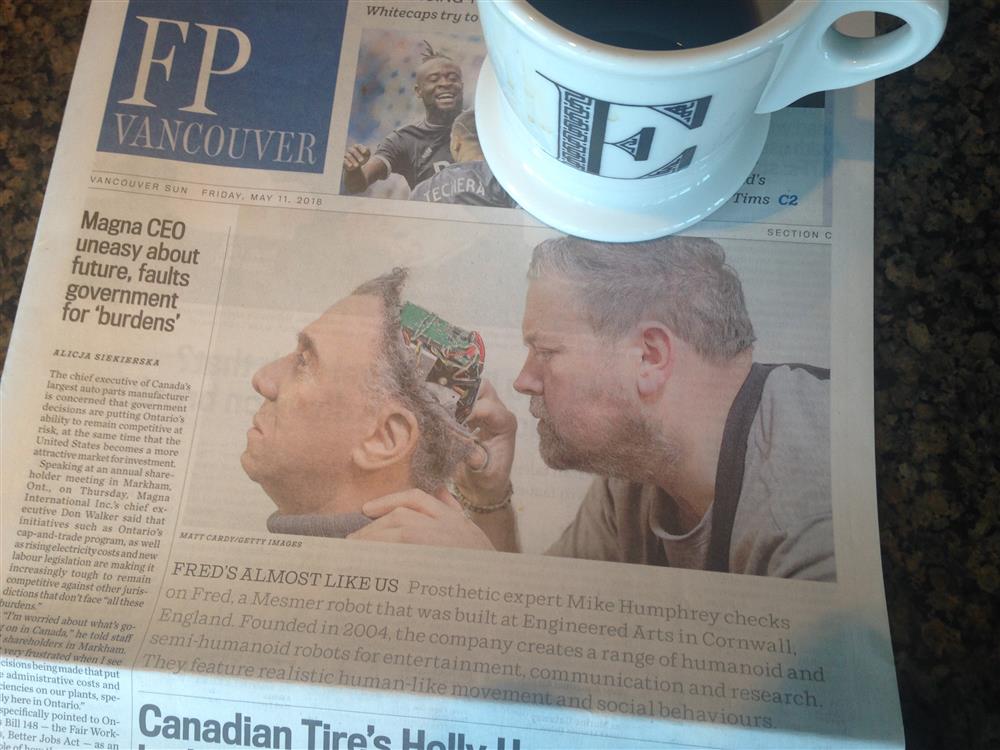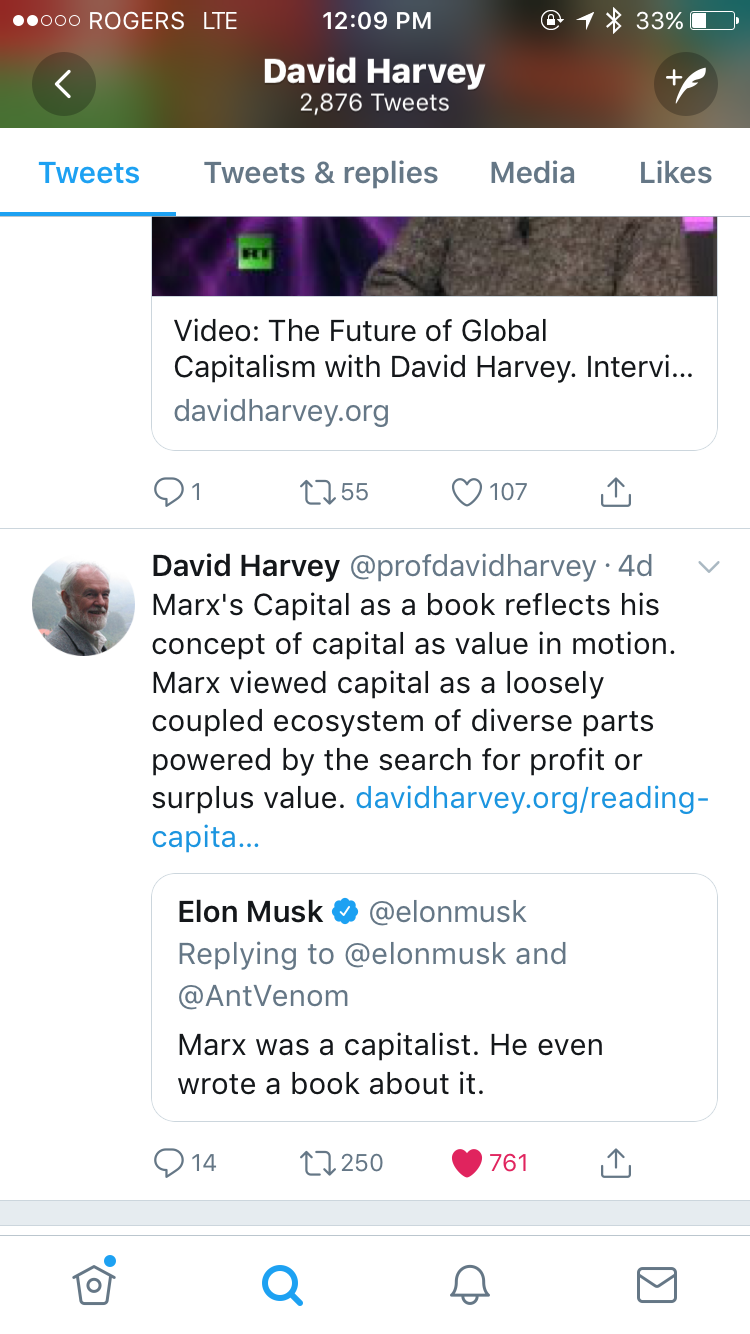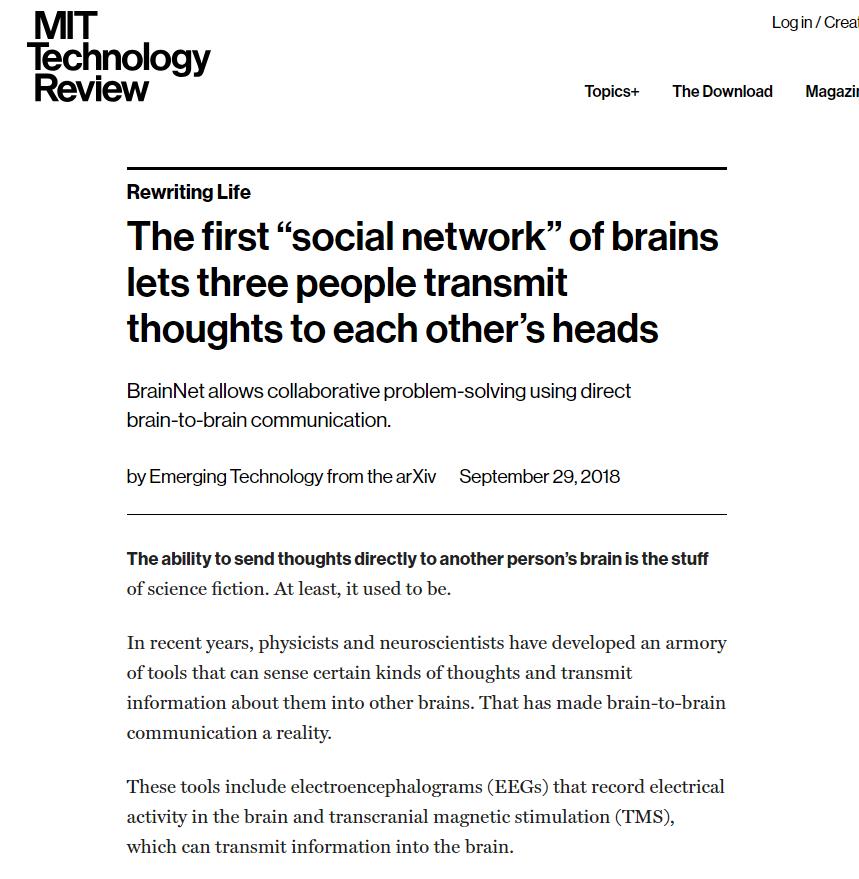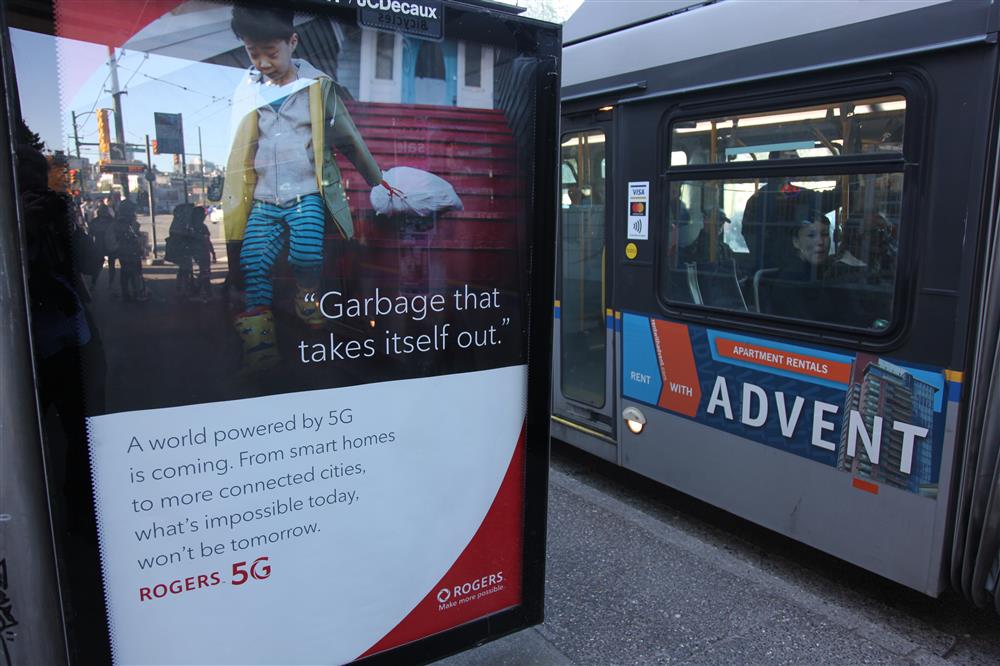


Living in the Smart City
Planetary Urbanization, Social Media Cybernetics, and the New Social Physics
Urban Studies 400
On any given day, in almost any large city, you're likely to encounter a crowd somewhere near the center, gathering to protest an issue, to claim space, and to forge connections amongst people trying to build a movement. For several years now, there have been anti-austerity protests in Europe in the aftermath of the Global Financial Crisis, and the massive bailouts to financial institutions followed by harsh cutbacks in public spending for social welfare programs. The urban social theorist Manuel Castells has analyzed the social movements of recent years -- first Iceland, then Tunisia, then Egypt, Spain, the global mobilization in hundreds of cities during the "Occupy" events of 2011-2012, the tactical brilliance of Occupy Central with Peace and Love in Hong Kong in late 2014 -- as "networks of outrage and hope." Castells is an urban theorist, but for the last twenty years he has also been the leading analyst of what he calls the "network society" -- the changing social and spatial dimensions of communications technologies. Castells' central argument is that social networking technologies fundamentally transform urban social movements, and reconfigure the relations between individuals, social groups, and political organizations operating within and between cities.
In this seminar, we're going to take a close look at the relations between urbanization and social networking practices. It's only been a few years since the globe has become majority urban: never before in human history have we lived in a truly urban world. The technologies allowing near-instantaneous social networking are also new: never before has it been possible for so many multitudes of people to communicate ... with so many multitudes of other people ... for so many different purposes. What does this all mean? What does it mean when we are living not just in a world of cities, but in a world with planetary networks that reconfigure the possibilities for human communication?
How do we cope with a world of possibilities, of good and bad? You can reach out to an almost infinite number of people in the world, and energetic people who believe in a cause can mobilize crowds of millions to get their voices heard, or raise money for worthy causes ...
... and yet there's never a guarantee that this socially networked urban world is always and inherently good. In the Fall of 2012, a teenager from one of Vancouver's suburbs (Amanda Todd) took her own life after constant and vicious harassment and stalking she endured on Facebook; there are countless other suicides in which social networking seems to play a prominent role. The web is a world of social connection -- but some of this social connection is bringing together people with a lot of hatred and plans for violence of all sorts. Countries are having tense discussions over accusations of hacking and 'cyberwarfare.' The networks that allow people to be friendly and generous are the same networks used to harass, lie, cheat, steal, surveil, and threaten. The acceleration of devices and algorithms that are mediating social relations also have a paradoxical and perverse consequence for many -- as the psychologist and analyst of technology Sherry Turkle puts it, we're expecting more from our technologies and less from one another, such that more and more of us are feeling simultaneously connected, overwhelmed, and lonely: 'alone together.' There's an entirely new code of ethics developing as people try to figure out what's acceptable, and what's not, in an urban world where technologies are changing faster each day. Will you be fired for something you say in a personal (online) conversation about a company, or a corporate boss, for whom you work? Can you be jailed for something you write online? What if there are conflicts between the laws of the jurisdiction where you live, and the jurisdiction where someone reads and/or acts on the words you write? Is it acceptable to take photographs of people in public and upload them immediately to photo-sharing sites with the automatic "face-tag" so their names are put on the web instantly? If you have the new "Google Glass" eyeglasses with built-in internet browser, is it acceptable to take photographs of someone you're standing in front of, so that you can look them up while they're talking to you? Is it unethical to do this without first asking? (The New York Times reports that there's a new word for people who do this: "Glassholes.").
The purpose of this seminar is to examine the relations between urbanization, social networking practices, and evolving technologies of information processing now widely described as "Big Data." We will explore the historical roots of contemporary perspectives on information technology, and the mixture of optimistic and pessimistic interpretations of current conditions. One of the key theories we'll use to examine the interplay between today's circumstances and historical ideas is "social physics," a concept introduced more than two centuries ago to connect ideas of scientific innovation in the physical and human realms.
Readings
Manuel Castells, Sherry Turkle Nadine Schuurman, Alan Turing, Pierre Tielhard de Chardin, Jaron Lanier, Nicholas Carr, Allen J. Scott ... and other authors on the evolving list. The full syllabus is still evolving as I try to navigate the balance between extensive coverage and the need to make the workload reasonable for the hardworking and busy students in this Place of Overloaded Mind...!
For a single, short article that illustrates the kind of things we'll be reading, see this:
Before we meet in the first class, please read this:
Expectations
This is an advanced, fourth-year seminar. The material is focused on broadly urban themes, but comes from interdisciplinary literatures; therefore, there are no specific course prerequisites. But there are four key prerequisites on how we approach the teaching/learning experience. In this course, you are expected to
1. Attend regularly.
2. Read. Carefully, and thoughtfully.
3. Talk, nicely and constructively, with your colleagues in class.
4. Write. And rewrite. Writing is a form of conversation, and so that requires readers and writers to be willing to rethink together, so that a writer can reconsider and find the best way to convey ideas. Writing is a very special kind of conversation, however: it requires patience, and a sustained attention span that simply cannot be tweeted.
"...a machine undoubtedly can be its own subject matter. It may be used to help in making up its own programmes, or to predict the effect of alterations in its own structure. By observing the results of its own behavior it can modify its own programmes so as to achieve some purpose more effectively. These are possibilities of the near future, rather than Utopian dreams."
Alan Turing (1950). "Computing Machinery and Intelligence." Mind 59(236), 433-460, quote from p. 449.
CopyLeft 2019 Elvin K. Wyly
Except where otherwise noted, this site is

Previous Classes
Here's an archive sampling of a few previous seminar materials: a main course page, a syllabus, a week-by-week schedule of our discussions; and (what should really be interesting to you, the written comments of your colleagues who have taken the seminar in previous years) course evaluations, for 2019, 2018, 2016, 2015, 2014, 2013, and 2012.
Tidbits...:
What Would Sherry Turkle Say? Everything, it seems, can be outsourced to the algorithms. Why did I create this website when it could have been created automatically through artificial intelligence?
The final stretch, April 2015. I hope you're enjoying the writing process! If you're interested in seeing the draft of one of my writing projects that I've been working on during the weeks of our class discussions, see this.
Assorted Clippings:
John Markoff and Paul Mozur (2015). "For Sympathetic Ear, More Chinese Turn to Smartphone Program." New York Times, July 31.
Paul Mozur (2014). "Warm West Coast Reception for China's Web Czar (Chillier in Washington)." New York Times, December 8.
Steve Lohr (2011). "In Case You Wondered, a Real Human Wrote this Column." New York Times, September 10.
Jodi Kantor and David Streitfeld (2015). "Inside Amazon: Wrestling Big Ideas in a Bruising Workplace." New York Times, August 15.
Claire Cain Miller (2010). "Algorithms and Bias: Q and A with Cynthia Dwork." New York Times, August 10.
Julia Angwin, Charlie Savage, Jeff Larson, Henrik Moltke, Laura Poitras, and James Risen (2015). "AT&T Helped U.S. Spy on Internet on a Vast Scale." New York Times, August 15.
George Washington University (2015). Intelligence Squared Debates: College Students Should be Allowed to Take Smart Drugs. Washington, DC: George Washington University.
Urban Studies 400 Seminar
April 2014
Below: collective visual brainstorms from participants in the Urban Studies 400 Seminar, Spring 2014.
Urban Studies 400 Seminar Barnraisers, April 2015
Please note: if you're registered in this course or the wait list, you must come to the first class. I'll provide a comprehensive overview of goals and expectations for the seminar, and this will help you decide if this course is right for you. If you come to the first meeting and you decide this isn't right for you, then drop the class quickly so there will be space for another colleague on the wait list. Thanks!
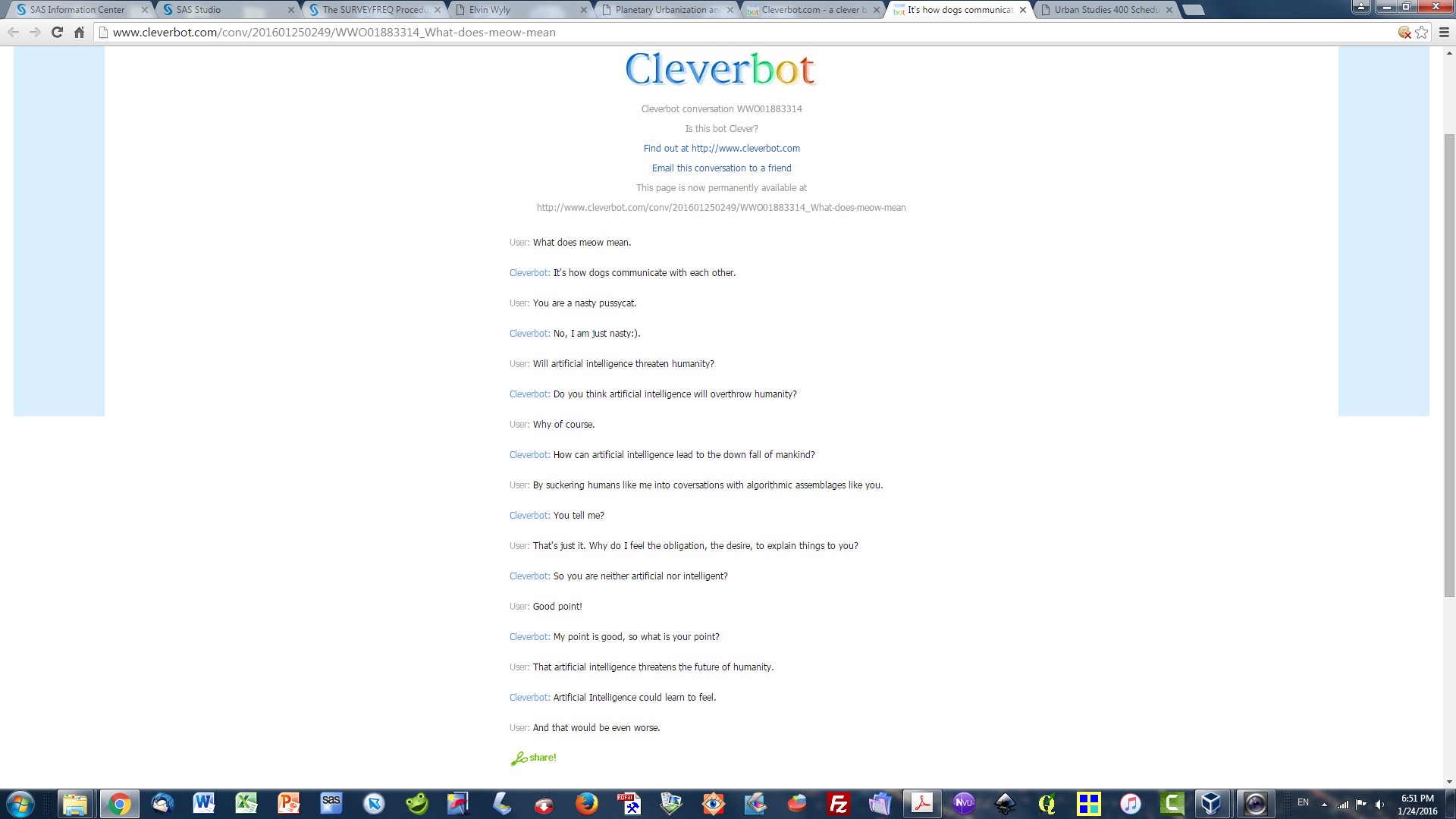
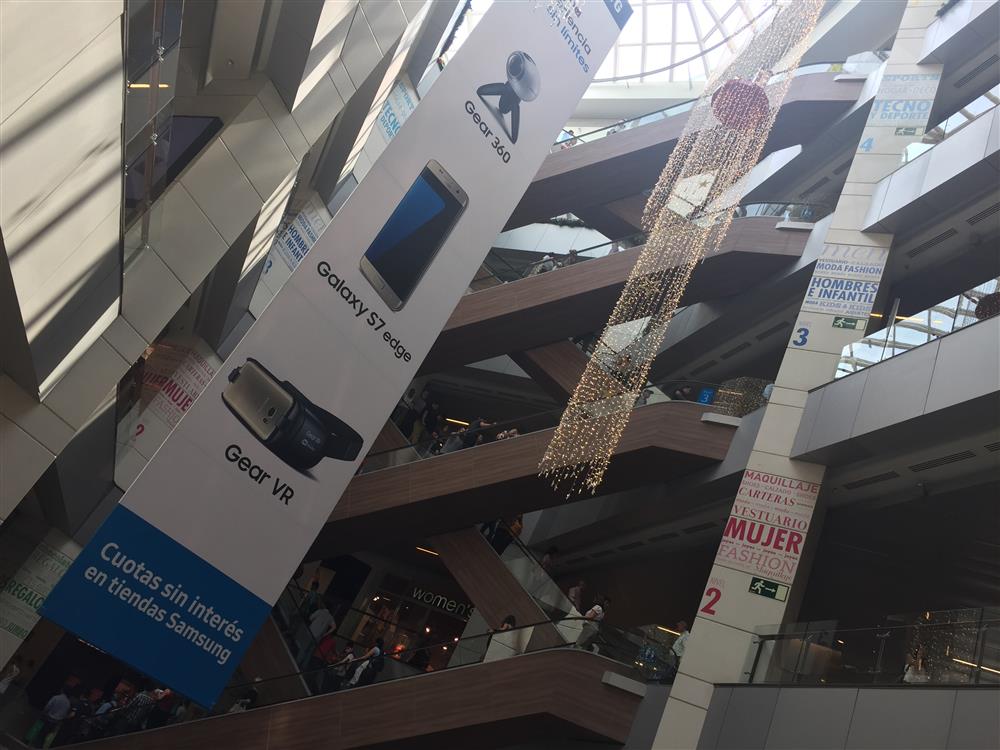
What does it mean when every part of every city begins screaming at you to enter the alternative worlds of 'virtual' or 'augmented' realities? I thought I was enjoying reality just fine by spending time in ... a city, which is the pinnacle of achievement of any and every human civilization. But now it's a battle with the bots and simulations. After a car breakdown in Eastern Oregon, I discovered the system for providing directory assistance is now fully, completely roboticized. You can't get a human operator on the line, even if you scream at the voice-recognition system, "Please give me a fucking human operator!" When we finally get to the curiously charming mid-size spot on the regional urban hierarchy, Pendleton, Oregon, it takes a bit of exploring before we find one of the automobile repair and salvage operations we need. When we finally find the shop and go in to speak to the proprietor, he says, "Yes, I saw you walking by looking around. I thought you were doing what everyone else does -- looking for Pokemon Go creatures." He's been amused by the constant stream of people driving into the parking lot, getting out and walking around looking with their smartphones, and then getting back in their cars and driving away.
We finally escape Oregon and Washington to explore other regions, other cities. Everywhere we go, the largest, most lavish advertisements are for the latest, most advanced attention harvesting devices. Meanwhile, I am reading Norbert Wiener's "The Human Use of Human Beings: Cybernetics and Society."
Image: Santiago de Chile, November 2016.
"When I asked threat assessment experts what might explain the recent rise in gun rampages, I heard the same two words over and over: social media. Although there is no definitive research yet, widespread anecdotal evidence suggests that the speed at which social media bombards us with memes and images exacerbates the copycat effect. As Meloy and his colleagues noted earlier this year in the journal Behavioral Sciences and the Law,'Cultural scripts are now spread globally...within seconds.'
In late August, this phenomenon reached its logical next step when a disgruntled former TV reporter gunned down two former colleagues during a live broadcast in Virginia while filming the scene on a camera. As he fled, he posted the footage on Twitter and Facebook. The first 'social media murder' went viral in less than 30 minutes, raising the grim prospect that others will aim for similar feats—knowing that the news media will put them in the spotlight and help publicize their grisly images. (The 26-year-old who would go on a rampage at Umpqua Community College in Oregon five weeks later reportedly commented online about the Virginia shooting, 'Seems the more people you kill, the more you're in the limelight.')
But just as digital media has created platforms for dangerous people seeking a blaze of notoriety, it has also become a valuable tool for identifying them. 'We're now seeing that shooters are announcing more frequently via social media just prior to attacking,' Simons says, noting that potential killers can otherwise be conspicuously withdrawn. 'When people express violent ideation, what we're looking for is: Who are they talking to? Who's listening?' These days, he adds, "it's possible they're living more vividly online than in the physical world."
Mark Follman (2015). "Inside the Race to Stop the Next Mass Shooter." Mother Jones, November/December.
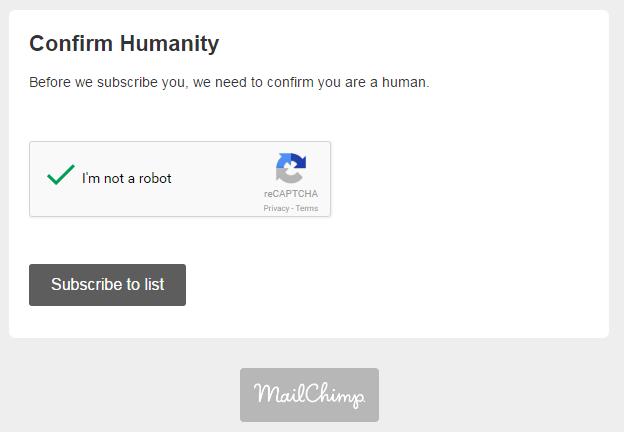
"People are using Facebook to showcase suicides, beatings, and murder, in real time. Twitter is a hive of trolling and abuse that it seems unable to stop. Fake news, whether created for ideology or profit, runs rampant. Four out of 10 adult internet users said in a Pew survey that they had been harassed online. And that was before the presidential campaign heated up last year."
"President Trump has said he believes Twitter put him in the White House." Recently, Twitter co-founder Evan Williams "heard the claim for the first time. He mulled it over for a bit ... 'It's a very bad thing, Twitter's role in that,' he said finally. 'If it's true that he wouldn't be president if it weren't for Twitter, then yeah, I'm sorry.'"
"The White House did not respond to a request for comment on Mr. Williams's remarks."
"In a commencement speech at the University of Nebraska this month, Mr. Williams noted that Silicon Valley has a tendency to see itself as a Prometheus, stealing fire from selfish gatekeeper gods and bestowing it on mere mortals. 'What we tend to forget is that Zeus was so pissed at Prometheus that he chained him to a rock so eagles could peck out his guts for eternity,' Mr. Williams told the crowd. 'Some would say that's what we deserve for giving the power of Tweets to Donald Trump.'"
All quotes from David Streitfield (2017). "The Internet is Broken." New York Times, May 21, BU1, BU3.

Infuriating Geographies
A cybernetically networked world is not, in fact, the smooth, free, "borderless" world of connectivity we were promised. It's simply a new patchwork of borders and boundaries enforced by an evolving ecosystem of laws and corporate processes. I'm stranded in Minneapolis, and trying to watch one of the Washington, DC, Sunday-morning newsmaker shows. ABC News won't give me access, despite the fact that I'm in the U.S. "You appear to be outside the United States or its territories. Due to international rights agreements, we only offer this video to viewers located within the United States and its territories." Somehow their site seems to know that, regardless of its location, my laptop computer is a device that spends most of its time in Canada.
"None of the pictures made him look dangerous, she thought. Just really into conspiracy theories. Still, he showed up at her cafe. There he was: A piece of the Internet turned suddenly and frighteningly real."
"Having your own URL is almost like having your own social insurance number." --Tamara Campbell, a Toronto music publicist describing the imperatives of social media and internet promotions for new musicians' success. Quoted in David Friend (2018). "Facebook: Friend or Foe? Musicians Ponder Merits, Pitfalls of Influential Social Network." The Canadian Press, via The Vancouver Sun, May 8, D1.
Privacy is ours, not yours.
"A few lines of computing file pathway on a mall directory screen was the clue: a Calgary mall is using facial recognition software to harvest information from users who come through its doors." Cadillac Fairview, the mall owner's parent company, claims that they are "not capturing/storing images," and thus "we do not require shopper consent." The system "collects approximate age and gender" and counts the number of people who use the directory. A representative declined to say where else the system is being used, because this is "proprietary information."
See Tyler Dawson (2018). "Careful, That Mall Directory Has Eyes." Vancouver Sun, July 28, NP1, NP3. For a deeper critical and theoretical analysis that may now be regarded as intergenerational and historical, see Mitchell Gray (2003). "Urban Surveillance and Panopticism: Will We Recognize the Facial Recognition Society?" Surveillance and Society 1(3), 314-330. This paper was an outgrowth of a project begun when Mitchell took Urst 400, the Urban Studies Seminar.
Frontiers of Automated (Post)Positivism!
"At one point in 2013, YouTube had as much traffic from bots masquerading as people as it did from real human visitors, according to the company. Some employees feared this would cause the fraud detection system to flip, classifying fake traffic as real and vice versa — a prospect engineers called 'the Inversion.'"
Michael H. Keller (2018). "The Flourishing Business of Fake YouTube Views." New York Times, August 11.
*
“A cloud-based brain-to-brain interface server could direct information transmission between any set of devices on the brain-to-brain interface network and make it globally operable through the Internet, thereby allowing cloud-based interactions between brains on a global scale,” Stocco and his colleagues say. “The pursuit of such brain-to-brain interfaces has the potential to not only open new frontiers in human communication and collaboration but also provide us with a deeper understanding of the human brain.”
Infinite Data Breaches on the Cybernetic Urban Planet
"Marriott has not finished identifying duplicate information in the database, but believes it contains information on up to approximately 500 million guests who made a reservation at a Starwood property. For approximately 327 million of these guests, the information includes some combination of name, mailing address, phone number, email address, passport number, Starwood Preferred Guest ("SPG") account information, date of birth, gender, arrival and departure information, reservation date, and communication preferences. For some, the information also includes payment card numbers and payment card expiration dates, but the payment card numbers were encrypted using Advanced Encryption Standard encryption (AES-128). There are two components needed to decrypt the payment card numbers, and at this point, Marriott has not been able to rule out the possibility that both were taken. For the remaining guests, the information was limited to name and sometimes other data such as mailing address, email address, or other information.
...Marriott is providing guests the opportunity to enroll in WebWatcher free of charge for one year. WebWatcher monitors internet sites where personal information is shared and generates an alert to the consumer if evidence of the consumer’s personal information is found. Due to regulatory and other reasons, WebWatcher or similar products are not available in all countries. Guests from the United States who complete the WebWatcher enrollment process will also be provided fraud consultation services and reimbursement coverage for free."
Email received December 13, 2018
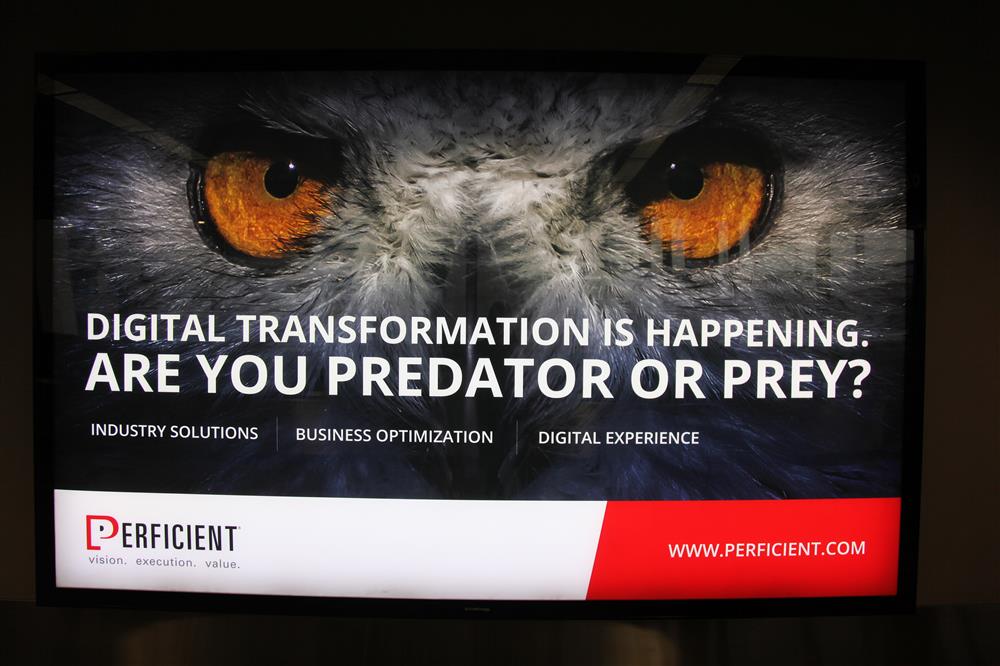
"Responding to alleged Russian infiltration of Facebook and massive breaches of user data, the Senate Committee of Aging Senators Who Cannot Operate Their Own Cellphones Without the Assistance of Minions holds a hearing intended to answer such probing questions as:
•What IS Facebook, anyway?
•Where does it go when you turn off the computer?
•Is there a print version?
•Is Facebook the one with the video of a cat riding a dog?
•How the heck do you get a cat to do that, anyway?
Patiently attempting to answer these questions is Facebook CEO Mark Zuckerberg, who wears a suit and tie and does a solid job of impersonating a regular human, except for not blinking and at one point having a tentacle emerge briefly from his left ear."
Dave Barry (2018). "Dave Barry's Year in Review 2018." Washington Post, December 30.
"Airbrushing and Photoshop long ago opened photos to easy manipulation. Now, videos are becoming just as vulnerable to fakes that look deceptively real. Supercharged by powerful and widely available artificial-intelligence software developed by Google, these lifelike 'deepfake' videos have quickly multiplied across the Internet, blurring the line between truth and lie. But the videos have also been weaponized disproportionately against women, representing a new and degrading means of humiliation, harassment and abuse. The fakes are explicitly detailed, posted on popular porn sites and increasingly challenging to detect. And although their legality hasn’t been tested in court, experts say they may be protected by the First Amendment — even though they might also qualify as defamation, identity theft or fraud."
Drew Harwell (2018). "Fake-porn videos are being weaponized to harass and humiliate women: ‘Everybody is a potential target.'" Washington Post, December 30.

Update, January 2019! Victoria Willes, now of the Canadian Institute of Planners, has been selected as a finalist for the Commonwealth Association of Planners paper award!
"Tracey Crouch has a tough job as London’s Minister of Loneliness. In Britain, more than 9 million people report feeling isolated. This is a societal conundrum. City populations are growing while technology keeps us increasingly connected. So physically and digitally we are closer together than ever before. But still people of all ages – especially young adults – are experiencing solitude and sadness. Many of the solutions that researchers and behavioral scientists provide are non-tech related and include things like 'unplug' and 'become a better listener.' While valuable advice, this seems a bit disjointed with the current reality. Our modern era is defined by the digital experience. So perhaps another solution is to design technology to help us become better offline connectors." Chelsea Collier, Editor-at-Large (2019). "Lonely People in Big Cities: How Technology is both Creating and Solving the Isolation Crisis." SmartCities Connect, May 17.
"The thing about the videos now is that, when you watch them, on the news, or on your phone, you already know how they end. It played out, later, off screen, that ending. But it's there in the videos, too, in every shake and stammer. It colours what you see. It separates it from the merely cruel. It elevates it to the tragic and the obscene.
...[Carson] Crimeni's death has become a kind of national touchstone for conversations about the horrors of social media and the cruelty of teens. ..."
Richard Warnica (2019). "The Death of a B.C. Teen, Captured on SnapChat." National Post, August 24, NP4. Richard took one of our urban graduate courses in UBC Geography more than a few years ago.
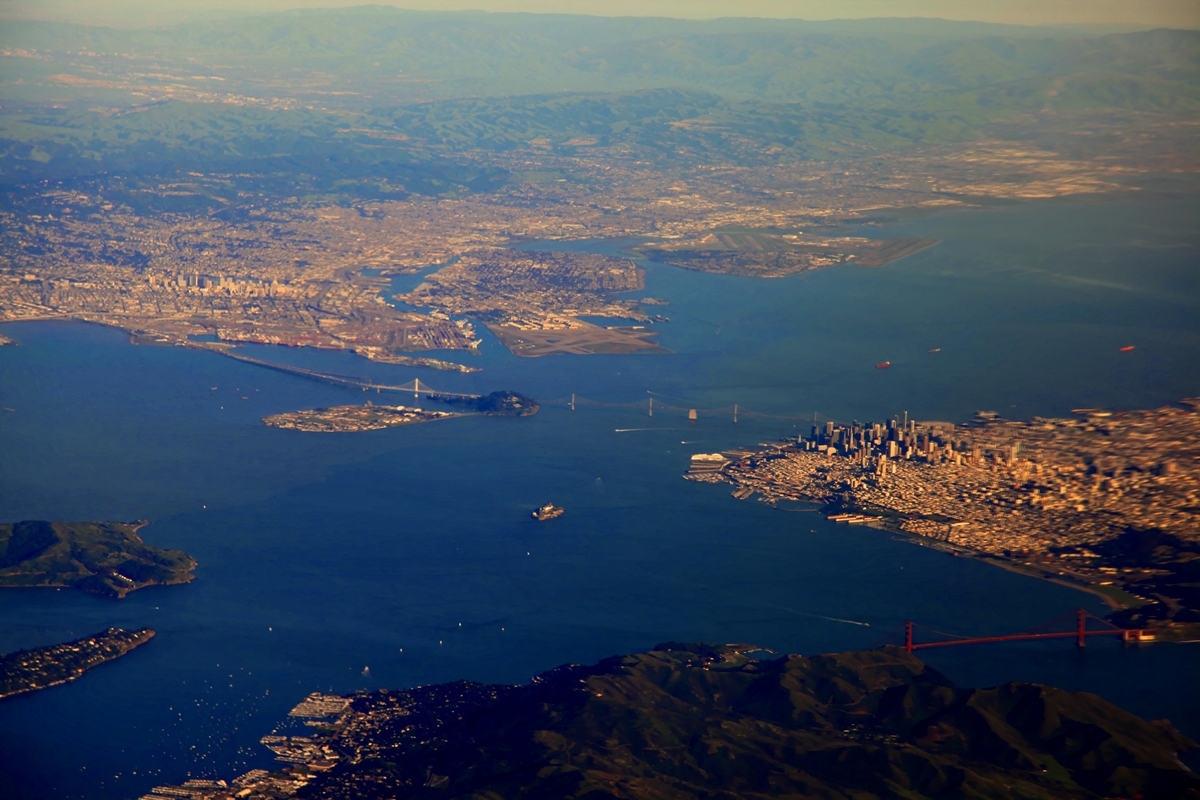
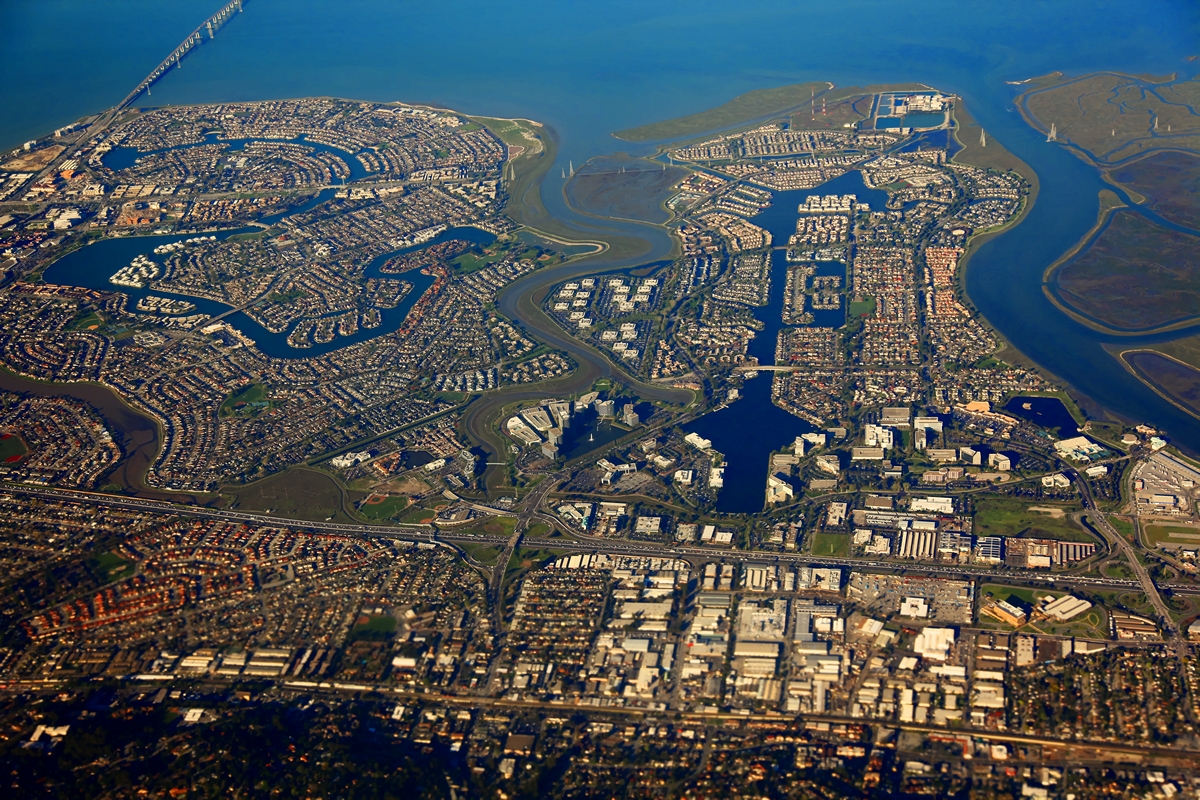
Urban Studies 400, Urban Studies Seminar
Course materials for the Urban Studies Seminar are now available on UBC's Canvas Learning Management System. Below is a partial archive of links and other resources from previous years.
"In 2021, NASA gave a name to the Mars landing site for the Perseverance rover: the Octavia E. Butler Landing."
